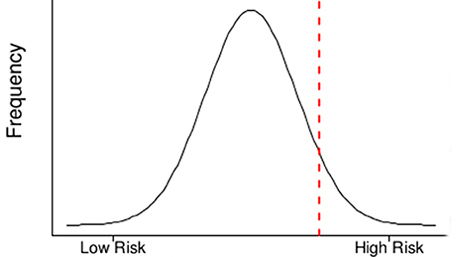
08/21/2020
Hot Topics of the Day are picked by experts to capture the latest information and publications on public health genomics and precision health for various diseases and health topics. Sources include published scientific literature, reviews, blogs and popular press articles.
Sign up MyPHGKB to receive the daily hot topic email alert.
Archived Hot Topics of the Day By Date
Modeling Contact Tracing Strategies for COVID-19 in the Context of Relaxed Physical Distancing Measures
A Bilinski et al JAMA Network Open, August 21, 2020
AI Methods Make COVID-19 Forecasting More Local
S Fernandez, Nexgov, August 10, 2020
Physics-informed machine learning for the COVID-19 pandemic: Adherence to social distancing and short-term predictions for eight countries
GD Bamparis et al, ARXIV, August 20, 2020
Image quality assessment for closed-loop computer-assisted lung ultrasound
ZMC Baum et al, ARXIV, August 20, 2020
Autonomous Social Distancing in Urban Environments using a Quadruped Robot
T Fan et al, ARXIV, AUgust 20, 2020
A Data-Efficient Deep Learning Based Smartphone Application For Detection Of Pulmonary Diseases Using Chest X-rays
S Shalu et al, ARXIV, August 19, 2020
Considerations, Good Practices, Risks and Pitfalls in Developing AI Solutions Against COVID-19
A Luccioni et al, ARXIV, AUgust 13, 2020
A review on the mobile applications developed for COVID-19: An exploratory analysis
MN Islam et al, ARXIV, August 20, 2020
Genomic epidemiology reveals transmission patterns and dynamics of SARS-CoV-2 in Aotearoa New Zealand
JL Geoghegan et al, MEDRXIV, AUgust 20, 2020
Is "No test is better than a bad test"? Impact of diagnostic uncertainty in mass testing on the spread of Covid-19
N Gray et al, MEDRXIV, August 20, 2020
The COVID-19 Pandemic Vulnerability Index (PVI) Dashboard: monitoring county level vulnerability
SW Marvel et al, MEDRXIV, August 20, 2020
Molecules in the blood of older people promote cancer spread
H Wang et al, Nature News, August 19, 2020
Health-care practitioners’ preferences for the return of secondary findings from next-generation sequencing: a discrete choice experiment
S Jiang et al, Genetics in Medicine, AUgust 21, 2020
LIVING WITH LYNCH 2020- Virtual Patient Workshop
Alive and Kicking and Colon Cancer Foundation Webinar October 9, 2020
Polygenic background modifies penetrance of monogenic variants for tier 1 genomic conditions
AC Fahed et al, Nature Communications, August 20, 2020
Disclaimer: Articles listed in Hot Topics of the Day are selected by Public Health Genomics Branch to provide current awareness of the scientific literature and news. Inclusion in the update does not necessarily represent the views of the Centers for Disease Control and Prevention nor does it imply endorsement of the article's methods or findings. CDC and DHHS assume no responsibility for the factual accuracy of the items presented. The selection, omission, or content of items does not imply any endorsement or other position taken by CDC or DHHS. Opinion, findings and conclusions expressed by the original authors of items included in the Clips, or persons quoted therein, are strictly their own and are in no way meant to represent the opinion or views of CDC or DHHS. References to publications, news sources, and non-CDC Websites are provided solely for informational purposes and do not imply endorsement by CDC or DHHS.
- Page last reviewed:Feb 1, 2024
- Page last updated:Apr 25, 2024
- Content source:






